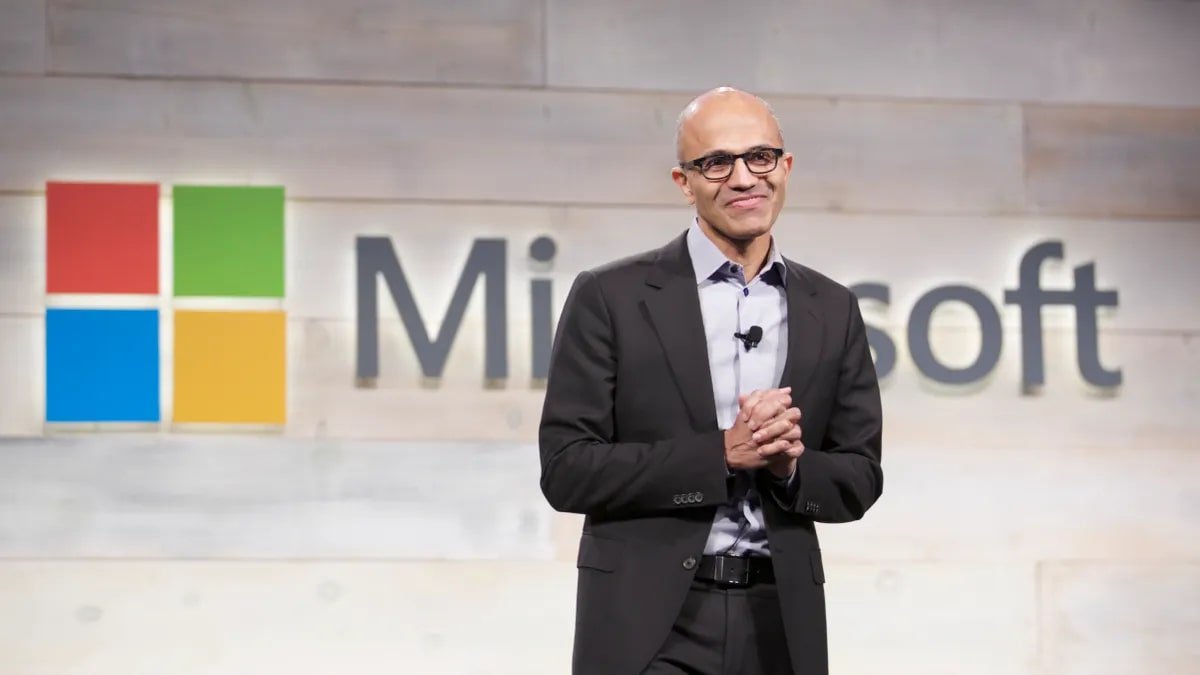Microsoft Chief Executive Satya Nadella has received a record-breaking $96.5 million (₹8,031.8 crore) compensation package for fiscal year 2025, marking a 22 percent increase from the previous year’s $79.1 million, according to the company’s latest proxy filing. The pay package, which makes Nadella one of the highest-paid executives in corporate America, comes amid the company’s most transformative phase since the dawn of the personal computing era.
Of the total compensation, $84.2 million was awarded in stock tied to Microsoft’s market performance. Nadella also received a $9.5 million cash bonus, a $2.5 million base salary, and about $196,000 in other benefits. More than 95 percent of the total pay, the board emphasized, was performance-based—reflecting shareholder returns, revenue growth, and operational execution in the company’s expanding artificial intelligence ecosystem.
Microsoft reported $281.7 billion in revenue for the fiscal year, up 15 percent from 2024, with net income rising 16 percent to $101.8 billion. The company’s board credited Nadella’s “strategic clarity” in positioning Microsoft as a global leader in artificial intelligence—a vision that has reshaped the company’s balance sheet and identity.
FCRF Launches CCLP Program to Train India’s Next Generation of Cyber Law Practitioners
The AI Dividend
Microsoft’s transformation into what its board calls a “generational AI leader” has been propelled by the success of Azure, its cloud computing arm, and Copilot, the AI assistant embedded across products from Office to GitHub. Both platforms have become central to the company’s growth narrative and to Nadella’s compensation calculus.
The compensation committee wrote that Microsoft’s “strong revenue, earnings, and shareholder return performance demonstrates that Satya Nadella and his leadership team have positioned Microsoft as a clear AI leader.” The company’s $13 billion investment in OpenAI since 2019, alongside efforts to build self-sufficient AI infrastructure, has placed it at the forefront of a rapidly intensifying race among tech titans.
Wall Street has rewarded that strategy. Microsoft’s stock has risen 23 percent this year, outpacing the S&P 500’s 15 percent gain and contributing to a market capitalization exceeding $3 trillion, second only to Apple. The AI boom has also amplified Microsoft’s visibility in enterprise markets—where Copilot and Azure’s AI services are increasingly viewed as indispensable tools for businesses navigating automation and data transformation.
A Decade of Leadership and Rising Stakes
Since taking over from Steve Ballmer in 2014, Nadella has redefined Microsoft’s identity—from a software vendor into a cloud-first, AI-driven platform company. Under his leadership, Microsoft’s market value has more than tenfolded, and its stock performance has consistently outpaced major indexes.
His compensation has mirrored that ascent. Nadella earned roughly $18 million in 2015, rising to $55 million in 2022, and now nearly doubling in just three years. The structure of his pay package, heavily weighted toward long-term equity incentives, reflects the board’s confidence in his stewardship during what many analysts describe as the company’s “AI renaissance.”
Yet, Nadella’s rising pay has not gone unnoticed. Governance advocates have long debated whether executive compensation has grown disproportionately relative to median employee pay—an issue Microsoft’s filings acknowledge but defend on performance grounds. The company notes that shareholder returns under Nadella’s tenure have been among the best in the industry, with Microsoft’s market cap crossing $3 trillion earlier this year.
Steering Through an AI Epoch
For Nadella, 2025 represents both a reward and a reckoning. Microsoft’s early bet on artificial intelligence—particularly its partnership with OpenAI and the rollout of Copilot—has solidified its dominance in the AI economy. But it has also brought scrutiny over the company’s control of emerging technologies and its role in shaping AI governance.
Analysts say Nadella’s challenge in the years ahead will be balancing the company’s commercial ambitions with regulatory realities, as governments worldwide move to constrain the influence of AI-driven platforms. At the same time, Microsoft’s push toward AI self-sufficiency—developing proprietary chips and large-scale data centers—marks a decisive turn away from dependency on third-party providers.
For now, the numbers tell a clear story. Microsoft’s record earnings and Nadella’s record compensation illustrate how artificial intelligence has become both the company’s growth engine and its most powerful symbol of leadership.
As the board put it in its filing, “Microsoft’s transformation under Satya Nadella has not only delivered exceptional results—it has reshaped the company’s trajectory for the next generation.”


